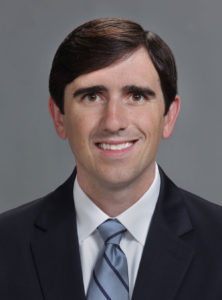PCL Knee Injury Specialist

Are you an athlete who participates in contact sports? If so, you may be at risk of sustaining a PCL injury. A PCL injury is caused by a powerful force to the front of the knee. This typically occurs from falling on a bent knee during a sporting activity. PCL tear specialist, Dr. Robert Boykin provides diagnosis and both surgical and nonsurgical treatment options for patients in Asheville who have sustained a PCL tear. Contact Dr. Boykin’s team today!
PCL Knee Injury Overview
The PCL, or posterior cruciate ligament, works together with the ACL (anterior cruciate ligament) to provide posterior/anterior (front/back) stability to the knee in addition to rotational stability. The PCL is often injured in a traumatic setting such as a motor vehicle accident, crash during skiing, or a hard hit during sporting competition (such as a direct hit on the ice during hockey). When such a force hits the knee, it can cause the tibia (or leg bone) to move backwards relative to the femur (thigh bone) with a resultant tear in the PCL. The mechanism of injury for a PCL injury is typically one where the knee is either hyper-extended or forced directly backwards with the knee flexed (bent). Due to the mechanism of injury required to sustain a PCL injury, tears are not as common as those of the ACL or MCL (medial collateral ligament). PCL injuries may also occur in conjunction with other ligament injuries. Knee specialists, Dr. Robert Boykin focuses on the treatment of PCL tears for patients in Asheville, Arden, Fletcher and surrounding communities.
Symptoms of a PCL Tear
The most common symptoms of a PCL injury are immediate pain and swelling of the knee. Other symptoms include pain when moving the knee and a loss of range of motion. When a patient attempts to walk with a PCL injury a sense of instability may be noted as the tibia translates on the femur.
How to identify a PCL injury
Dr. Boykin will begin his diagnosis of a PCL injury with a thorough history and examination of the knee. While palpating and manipulating the knee he will compare the injured leg to the uninjured leg to assess the amount of instability and damage to any other ligaments. Specific tests, including a posterior drawer test and a dial test help to evaluate injury to the PCL. X-rays will be obtained to evaluate bony injury and assess overall alignment of the leg. In the majority of cases a specialized X-ray (called a PCL stress X-ray) will be taken for both legs. This is performed on a custom apparatus to compare the amount of instability by measuring posterior translation in millimeters. In most cases an MRI is also obtained to further evaluate the PCL and other knee structures.
PCL are graded based on the following classification:
- Grade 1: Partial tear of the PCL with minimal posterior sag
- Grade 2: Partial tear of the PCL with moderate posterior sag
- Grade 3: Complete tear of the PCL
In the majority of cases, Dr. Boykin may decide that surgery is not the best option for a patient. In these instances he will recommend a variety of non-surgical treatment techniques such as bracing, rest, icing, and physical therapy. A period of restricted weight bearing may also be prescribed. If these techniques do not prove to be successful, or in cases of multiligament injuries including the PCL, Dr. Boykin will discuss surgical treatment methods.
What is PCL surgery?
The surgical procedure used to treat a PCL tear is called a PCL reconstruction. During this surgery Dr. Boykin will replace the torn ligament with a graft that is similar in size to the native PCL. To provide the proper size and length of a graft for a PCL reconstruction, a donated graft is typically used. This procedure is performed arthroscopically using small incision, a camera, and specialized instruments. Surgical reconstruction of a PCL injury is considered a complex knee surgery. Dr. Boykin has specific training and experience in performing this surgery.
For more information of PCL knee injuries, or for additional resources on PCL reconstruction, or multi-ligament knee surgery, please contact the office of Dr. Robert Boykin, orthopedic knee, shoulder and hip surgeon and sports medicine specialist serving patients in Asheville, Arden, Fletcher and surrounding North Carolina communities.
